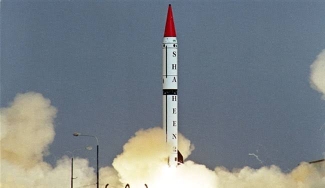Pakistan on Saturday successfully tested the 450 -km fire -capacity surface -to -surface ballistic missile ‘Abdali Weapon System’. This test was conducted under ‘Exercise Indus’. It aims to ensure the operational readiness of military forces and validate technical parameters such as advanced navigation systems and better dynamics of the missile. This step has been taken amid growing tension with India after the terrorist attack on 22 April in Pahalgam, Jammu and Kashmir.
Pakistan’s Army’s Media Wing, Inter-Services Public Relations (ISPR) issued a statement saying that the test was seen by senior officials and scientists of the Army Strategic Forces Command Command, senior officials and scientists of the Strategic Plans Division. The statement claimed that the test reflects Pakistan’s commitment to strengthen the defense capacity and maintain regional stability. However, India has seen this test as provoking, especially when tension between the two countries is at its peak.
After the Pahalgam attack, India has taken several tough measures against Pakistan, including full ban on direct and indirect imports, suspension of the Indus Water Treaty and the closure of Indian ai from Pakistani flights. Pakistan’s Defense Minister Khwaja Mohammad Asif recently claimed that India is planning a military action, in response to which Pakistan is strengthening its military preparations.
The Abdali missile, also known as Hatf-2, is a Solid-Propalent Short-range ballistic missile, which was included in the service in 2005. This missile is capable of carrying both traditional and non-traditional weapons. Analysts believe that this test may be part of Pakistan’s aggressive strategy towards India, especially when India is strengthening its missile defense system. This test may deepen the possibility of increasing arms race in South Asia and regional instability.






